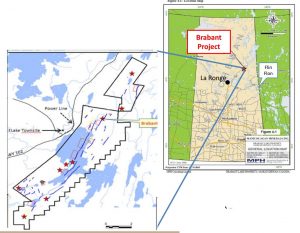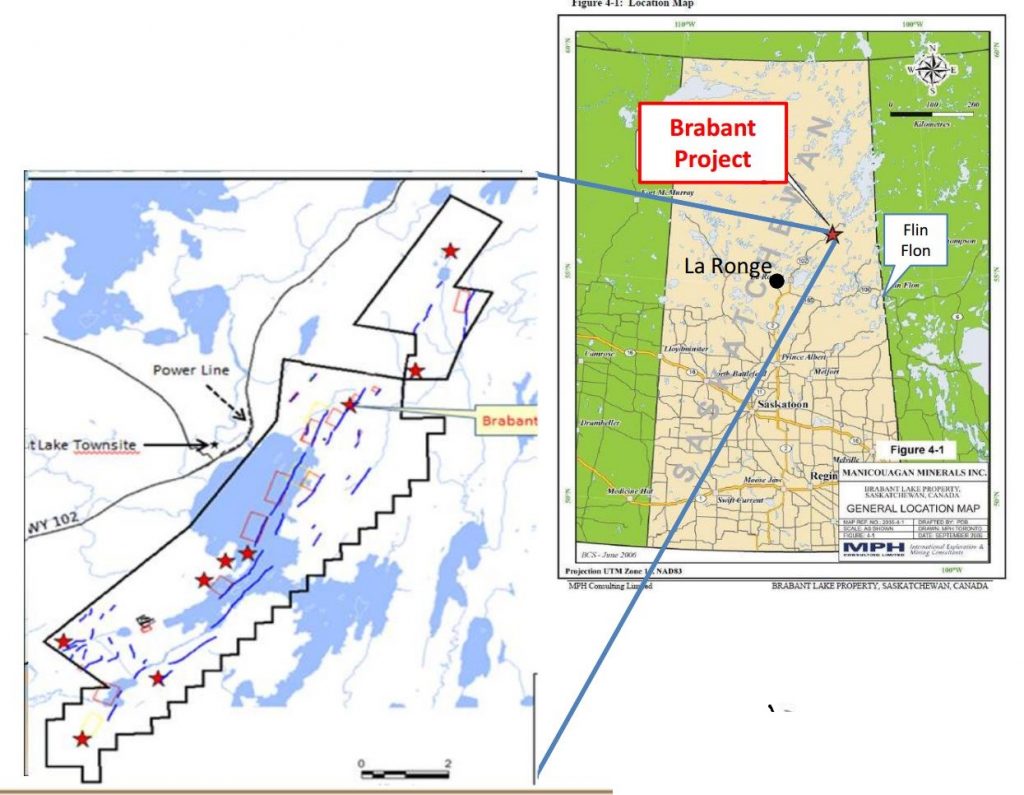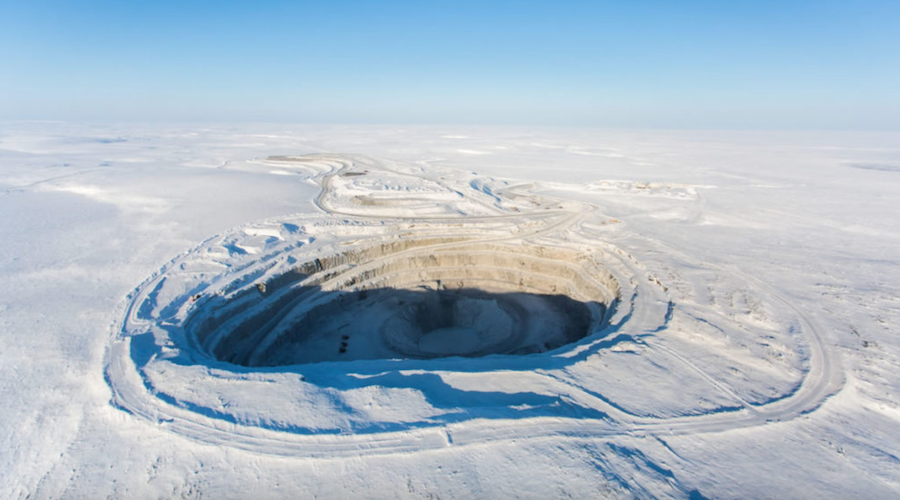SASKATCHEWAN –
Murchison Minerals of Toronto has received positive results from geophysical surveys of its Brabant-McKenzie zinc-copper deposit 175 km northeast of La Ronge.
[caption id="attachment_1003716804" align="alignright" width="300"]
 Map of the Brabant Lake property. (Image: Murchison Minerals)
Map of the Brabant Lake property. (Image: Murchison Minerals)[/caption]
The BHEM survey focused on the edges of the upper and lower main mineralized zones (the Main zone). Numerous conductive electromagnetic plates coincident with thicker zones of the deposit were identified. Additional targets were identified immediately adjacent to the Main zone.
Subsequently, Murchison commissioned a 120-line-km Heli-SAM survey along the deposit strike to detect conductive pyrrhotite-rich zones at greater depths that previously located. The survey outlined a down dip extent of about 1,000 metres, almost twice as deep as historic methods had revealed. Two new large, discrete conductors have also been identified 1.5 km southwest and 1.4 km south of the deposit.
The company says that the clustering of these multiple conductive zones is encouraging, in that it is common for several zones of stratabound mineralization to occur locally within a volcanogenic massive sulphide setting.
Based on these and older geophysical results as well as a new geological interpretation, a 10-hole, 5,000-metre diamond drilling program has been started. The focus will be along strike and on the down dip and plunge extensions of the Main zone.
Additional data about Brabant-McKenzie is available at
www.MurchisonMinerals.com.

 Map of the Brabant Lake property. (Image: Murchison Minerals)[/caption]
The BHEM survey focused on the edges of the upper and lower main mineralized zones (the Main zone). Numerous conductive electromagnetic plates coincident with thicker zones of the deposit were identified. Additional targets were identified immediately adjacent to the Main zone.
Subsequently, Murchison commissioned a 120-line-km Heli-SAM survey along the deposit strike to detect conductive pyrrhotite-rich zones at greater depths that previously located. The survey outlined a down dip extent of about 1,000 metres, almost twice as deep as historic methods had revealed. Two new large, discrete conductors have also been identified 1.5 km southwest and 1.4 km south of the deposit.
The company says that the clustering of these multiple conductive zones is encouraging, in that it is common for several zones of stratabound mineralization to occur locally within a volcanogenic massive sulphide setting.
Based on these and older geophysical results as well as a new geological interpretation, a 10-hole, 5,000-metre diamond drilling program has been started. The focus will be along strike and on the down dip and plunge extensions of the Main zone.
Additional data about Brabant-McKenzie is available at
Map of the Brabant Lake property. (Image: Murchison Minerals)[/caption]
The BHEM survey focused on the edges of the upper and lower main mineralized zones (the Main zone). Numerous conductive electromagnetic plates coincident with thicker zones of the deposit were identified. Additional targets were identified immediately adjacent to the Main zone.
Subsequently, Murchison commissioned a 120-line-km Heli-SAM survey along the deposit strike to detect conductive pyrrhotite-rich zones at greater depths that previously located. The survey outlined a down dip extent of about 1,000 metres, almost twice as deep as historic methods had revealed. Two new large, discrete conductors have also been identified 1.5 km southwest and 1.4 km south of the deposit.
The company says that the clustering of these multiple conductive zones is encouraging, in that it is common for several zones of stratabound mineralization to occur locally within a volcanogenic massive sulphide setting.
Based on these and older geophysical results as well as a new geological interpretation, a 10-hole, 5,000-metre diamond drilling program has been started. The focus will be along strike and on the down dip and plunge extensions of the Main zone.
Additional data about Brabant-McKenzie is available at 




Comments